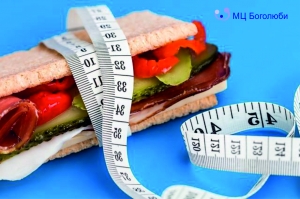The set Gia of us have heard stories of teenagers suffered from anorexia . But it seems distant, unrelated to our own child, and we sometimes do not pay enough attention to what is happening nearby. How do you recognize a danger? How to behave so that the situation does not worsen? Let's consider these questions step by step.
Broadly defined, anorexia is an eating disorder associated with decreased appetite and decreased food intake. However, adolescents are most often diagnosed with anorexia nervosa , a mental disorder. It is based on the desire to change yourself, your body, to lose weight.
Adolescent anorexia is difficult to diagnose in the initial stages, since the patient himself does not realize that he deliberately refuses to eat . For young people, appearance is of great importance and lies at the center of all experiences. A special category of risk is represented by adolescents who have just emerged from childhood . 90% of patients are girls, boys are less susceptible to this disease, since they take less care of their appearance.
Doctors believe that the true picture of the incidence is not known to us due to the fact that only severe cases are officially taken into account, when intensive therapy is already needed.
Symptoms
The main symptom of anorexia is excessive thinness. In addition, general weakness, unwillingness to eat, pallor of the skin, attacks of "wolf hunger", thinning and loss of hair, brittle nails are noted, even minor injuries do not heal well. The child may complain of nausea, heart palpitations.
To understand in time that something is wrong with the child, pay attention to his attitude to food. Perhaps he suddenly became interested in diets (which had not been observed before). The topic of weight loss is central to the conversation. The teenager becomes vulnerable, reacts too emotionally to any remark.
Effects
Due to the lack of nutrients in the body, negative changes occur. The danger of the disease lies in the inadequate work of internal organs and systems. This is fraught with a number of consequences:
• general exhaustion;
• violation of the development of the nervous system;
• diseases of the musculoskeletal system;
• dysfunctions of the gastrointestinal tract;
• infertility.
Who should you contact first? First, you can go to the family doctor With Posted in General doctor about changing eating behavior of the child . The specialist will estimate changes in Formula blood disorders exch ene substances underweight, optionally send to specialists - psycho iatru , children's gynecologist. (These specialists are receiving appointments at the Bogolyuby MC )
If your child begins to gain weight and is complex because of this, treat his feelings with understanding and sympathy. Show the child that his ox n eniya - no nonsense, they are significant. Diminishing the importance of problems, lack of support will only alienate you from each other. It is very important not to speak directly, they say, this is the case with everyone at your age, since it will be perceived as a denial. Offer to consult with experts. This will create a positive attitude towards accepting help. Be sure to ask if the child agrees to see a doctor? If the teenager "gets involved" in the interaction, then the treatment will be successful.
To prevent the child from being possessed by obsessive thoughts about changing himself, parents should be very careful about judgments regarding appearance. It happens that the family simply does not notice the rude remarks of adults, such as "you are overweight." A vulnerable girl after such a decision will decide that even her family rejects her physical appearance. It happens that teachers add oil to the fire, causing psychological trauma to a well-fed child.
Be very careful in communication, strengthen the self-esteem of your children, celebrate the merits of their actions. A teenager is the more susceptible to external influences, the less he develops as a person. It is good when a child comes to adolescence with his own specific interests. In this case, he has an inner resource to cope with a difficult situation.
















